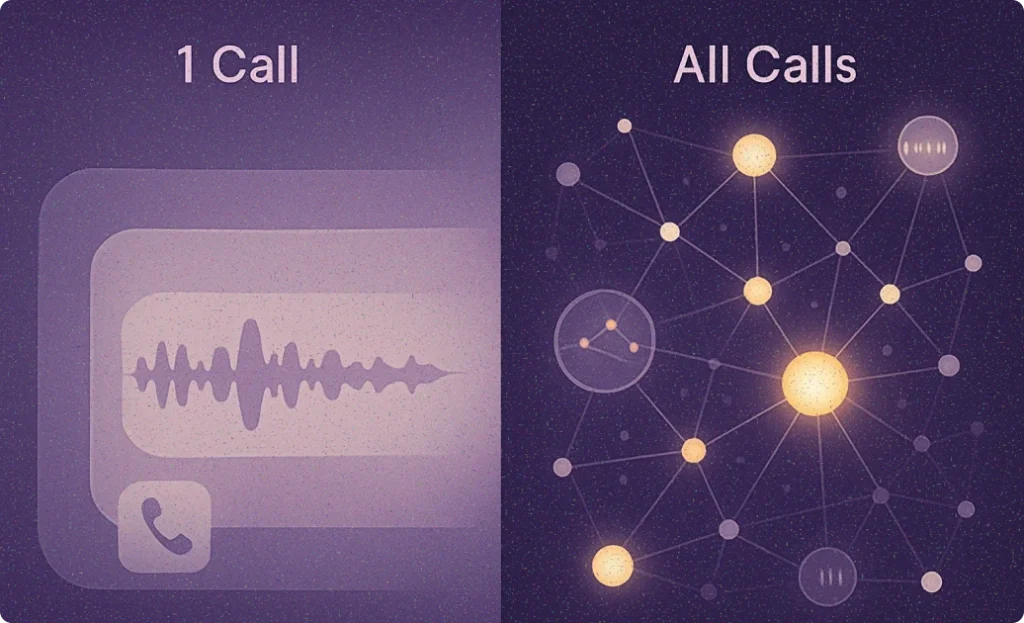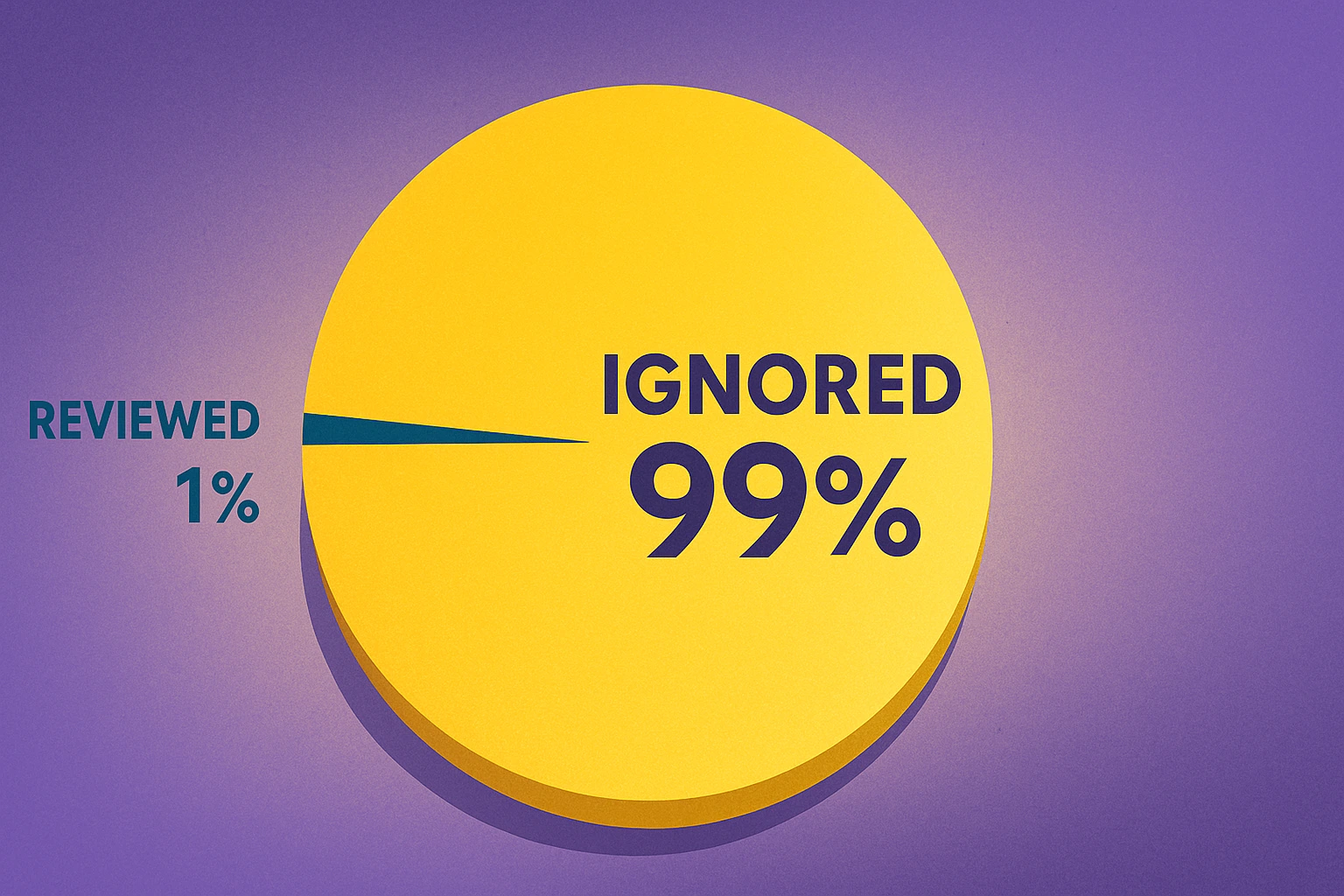Why AI Coaching Scales What Human Coaching Can’t
-
Clinton Folaranmi
- 10 min read

I think everyone’s having the wrong argument about AI coaching and perhaps even AI in general.
The debate centers on replacement: “Can AI replace human coaches?” Speed versus empathy, scale versus intuition.
The real question is whether human coaching can see what AI systems see.
I believe this answer matters more than the replacement debate.
The Coach Who Only Watches One Game
 This is the more popular point of discourse here, but let’s imagine a basketball coach who only watches the last game their team played. Just the most recent one.
This is the more popular point of discourse here, but let’s imagine a basketball coach who only watches the last game their team played. Just the most recent one.
That coach gives feedback based solely on that single game. “You’re shooting too many threes,” they say after watching a game where the team went cold from distance. The previous ten games showed the opposite problem, but those games are invisible.
This is human sales coaching in 2025.
Sales managers coach based on recency bias. They listen to the last call they reviewed, the most recent deal that went sideways, the conversation that’s fresh in their memory. The pattern emerges from what just happened, whether or not that represents reality.
Now, imagine a coach watches every single game. He sees that your top performer closes 30% more deals when they ask about budget in the first five minutes. It notices your struggling rep loses deals when discovery runs past 40 minutes. It catches that objections about price actually predict wins because engaged buyers negotiate.
Human coaches see snapshots whereas an AI coach sees the time-lapse.
The Clone Problem
Here’s an uncomfortable truth about human coaching: managers create clones of themselves.
When your manager was a rep, they had a style that worked. Maybe consultative. Maybe aggressive. Maybe relationship-driven. That style got them promoted.
Now they’re coaching you to sell the way they sold. Their personality, their approach, their techniques are all applied to your territory, your buyers, your situation.
This is like a chef who only knows French cuisine teaching you to cook. You’re learning French cooking. What would you do if your customers wanted Thai?
AI coaches analyze what actually works for reps with your profile, selling to your type of buyer, in your specific situation. It coaches you to become the best version of yourself based on data from thousands of similar situations.
You learn to sell like the top performer in your category, with your strengths, to your buyers.
The Favoritism Tax
You might not want to admit it, but managers play favorites.
The intention is good. Top performers are easier to coach. They ask better questions. They implement feedback faster. They make the manager look good. So they get more coaching time.
It’s a rational choice: managers have limited bandwidth, and top performers yield a higher return on that investment. Consequently, struggling representatives receive less attention.
This approach leads to a predictable outcome: The sales representatives most in need of coaching are the ones who receive it least. Consequently, the performance gap is exacerbated—the bottom performers remain stalled, while the top performers further elevate their results.
This is the coaching world’s version of “the rich get richer.”
AI gives every rep the same depth of analysis, the same quality of feedback, the same attention to their specific gaps. The struggling rep gets the same treatment as the star performer.
Human coaching compounds advantages. AI coaching levels the field.
Coaching Latency Kills Deals
Here’s a question: When does coaching actually happen?
In most organizations, it goes like this. Rep has a call on Monday. Manager reviews it on Friday (if they review it at all). They schedule a coaching session for the following Wednesday. By the time the rep gets feedback, they’ve already had ten more calls with the same mistake.
This is coaching latency. The gap between the mistake and the correction.
Consider a tennis coach who observes your poor serving technique but remains silent. Two weeks later, after you’ve repeated the incorrect motion 500 times, they finally point out, “Your serve is off.” By then, the bad habit is deeply ingrained. This scenario illustrates a fundamental problem in coaching today.
The latency in sales coaching is enormous. A rep makes an error on an objection early on Monday. By that afternoon, AI has already flagged it. The rep receives feedback before their next call, preventing the mistake from becoming a pattern. The error is compounded zero times instead of ten.
Human coaching corrects mistakes after they’ve become habits. AI coaching catches mistakes before they become patterns.
The Practice Paradox
Elite athletes train constantly. LeBron James has taken millions of practice shots. Serena Williams has hit millions of practice serves. They learned through repetition in safe environments before playing real games.
Sales reps learn by playing only real games.
Think about that. Every call is live. Every conversation is with an actual buyer who could actually close or walk away. There’s no practice court. No scrimmage. No safe place to fail.
Roleplaying scenarios, where a manager acts as the buyer, are a common but often ineffective coaching tool. Because the rep is aware they are playing against their manager, the dynamic is awkward for everyone. The feedback provided is merely one person’s subjective opinion on an artificial interaction, after which the team simply returns to their actual calls.
Sales is the only profession where beginners practice on customers.
AI creates judgment-free simulation at scale. You can handle the toughest objection 50 times before you face it live. You can practice discovery questions until the structure becomes muscle memory. You can fail privately and learn publicly.
Top performers are made through repetition. AI makes that repetition possible without burning through your buyer list.
What Humans Can’t See
Human coaches listen for specific things. Did the rep ask discovery questions? Did they handle the objection? Did they set next steps? These are coachable moments, and good managers catch them.
But there’s a category of insights human coaches literally cannot perceive:
Talk speed. Reps who speak 10% slower close 15% more deals. No human coach can accurately detect a 10% difference in speaking pace across calls.
Filler word frequency. Reps who say “um” and “like” more than 8 times per call lose credibility. Human coaches notice when it’s egregious. They miss the pattern when it’s subtle.
Sentiment shifts. Buyers signal disengagement through micro-changes in tone, energy, and word choice. AI catches these shifts. Humans hear “the call went fine.”
Cross-call patterns. A rep loses three deals in a row when they mention pricing before establishing value. The rep doesn’t connect the dots. The manager doesn’t either—they reviewed different calls on different days and never saw the pattern.
AI sees all of it. It measures things we can’t measure. It remembers things we can’t remember. It connects dots across datasets we can’t hold in our heads simultaneously.
Human coaches work with the limitations of human perception. AI coaches work with the full signal.
What’s Next?
Human coaches scale by cloning themselves. They teach reps to sell the way they sold. They give feedback based on their own judgment. They create little versions of themselves across the team. When it works, you get consistency. When it fails, you get a team full of people trying to be someone they’re not.
AI coaches scale by seeing what humans can’t. It finds patterns invisible to human perception. It eliminates biases humans carry. It coaches at the moment of need. It creates practice environments that don’t exist in human-only coaching. It pulls insights from across your entire organization.
This amplifies the human coach. The manager who used to spend 20 hours a week reviewing calls and writing feedback now spends that time on strategic coaching, relationship building, and handling the nuanced human situations AI can’t navigate—career development, team dynamics, motivation, mentorship.
The manager becomes what they should have been all along: a leader, not a call reviewer.
Reps, on the other hand, benefit from coaching that is demonstrably faster, fairer, more comprehensive, and ultimately more effective than any previous method.
The Bottom Line
At Insight7, we believe every sales and customer success team deserves coaching that goes beyond human limitations.
Imagine coaching that:
- Sees what human coaches can’t.
- Levels the playing field instead of favoring a select few.
- Learns from every single conversation across your entire organization.
- Happens in real-time.
- Creates a safe space for practice before high-stakes customer interactions.
This is the power we’ve built into our platform.
Your teams generate thousands of conversations monthly, each a rich source of coaching intelligence for the individual rep and your entire revenue organization. The critical question is: are you uncovering this intelligence, or is it left buried in recordings no one ever reviews?
The difference is clear: Human coaches scale by multiplying themselves. AI coaches scale by revealing insights human coaches cannot see.
And that capability changes everything.
Want to see how AI coaching transforms your revenue teams? Let’s talk →







